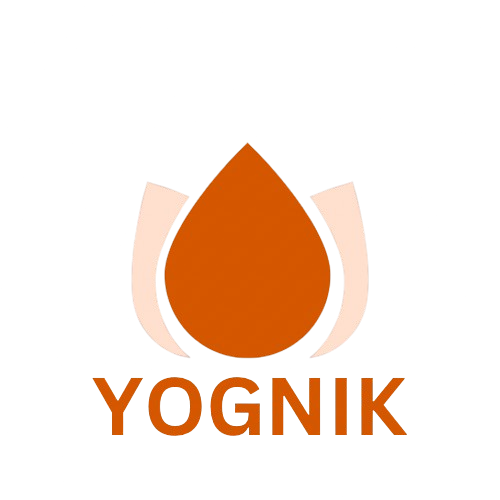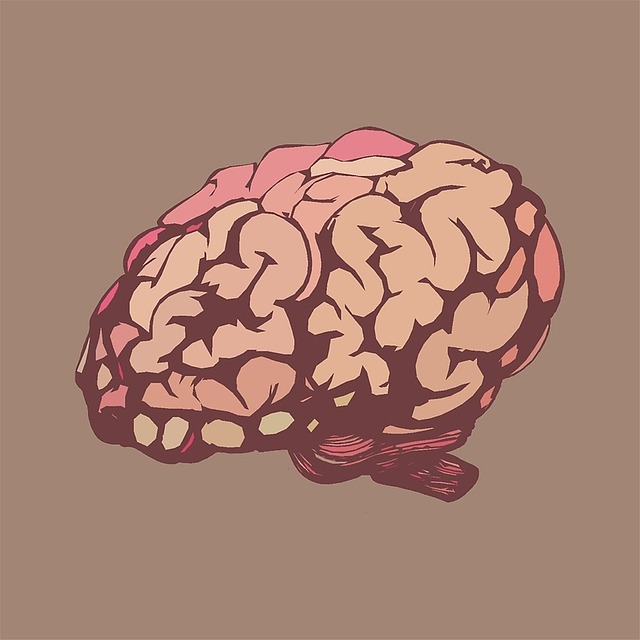Have you ever had a dense fog surrounding your mind?You struggle to focus, find the right words, or remember simple tasks. If this sounds familiar, you might be experiencing brain fog. This frustrating condition affects millions of people worldwide, leaving them feeling confused, forgetful, and mentally exhausted.
But here’s the good news: you’re not alone, and there’s hope. Understanding brain fog is the first step towards clearing the haze and reclaiming your mental clarity. In this comprehensive guide, we’ll explore the causes of brain fog, uncover natural remedies, and reveal lifestyle changes that can help sharpen your mind. From identifying triggers to implementing long-term strategies for brain health, we’ll equip you with the tools you need to combat this cognitive cloudiness and rediscover your mental potential.
Are you ready to lift the fog and unleash your brain’s full power? Let’s dive into the world of brain fog and discover how you can transform your mental landscape for good
A. Defining brain fog and its symptoms
Brain fog, while not a medical condition itself, is a term used to describe a state of mental confusion, lack of focus, and reduced cognitive clarity. Common symptoms include:
-
- Difficulty concentrating
-
- Memory problems
-
- Reduced mental acuity
-
- Feeling mentally “fuzzy” or “cloudy”
-
- Struggling to find words or articulate thoughts
B. Common causes of brain fog
Brain fog can stem from various factors, including:
-
- Lack of sleep
-
- Chronic stress
-
- Poor diet
-
- Hormonal imbalances
-
- Certain medications
-
- Underlying health conditions
| Cause | Impact on Brain Function |
|---|---|
| Sleep deprivation | Impairs memory consolidation and cognitive processing |
| Chronic stress | Elevates cortisol levels, affecting brain cell communication |
| Poor nutrition | Deprives the brain of essential nutrients for optimal function |
C. Impact on daily life and productivity
Brain fog can significantly affect various aspects of life, including:
-
- Work performance
-
- Academic achievement
-
- Social interactions
-
- Decision-making abilities
-
- Overall quality of life
When experiencing brain fog, individuals may find it challenging to complete tasks efficiently, engage in complex problem-solving, or maintain meaningful conversations. This can lead to decreased productivity, increased frustration, and potential impacts on personal and professional relationships.
Understanding brain fog is the first step towards addressing its underlying causes and finding effective solutions. By recognizing the symptoms and potential triggers, individuals can take proactive steps to improve their cognitive function and overall well-being. Next, we’ll explore how to identify specific triggers that may be contributing to your brain fog experiences.
Identifying Triggers
Now that we understand what brain fog is, let’s explore the various factors that can trigger this cognitive condition. Recognizing these triggers is crucial for effectively managing and reducing brain fog symptoms.
A. Lifestyle Factors
Several lifestyle choices can contribute to brain fog:
-
Lack of sleep
-
Chronic stress
-
Sedentary behavior
-
Excessive alcohol consumption
-
Overuse of electronic devices
B. Medical Conditions
Certain medical conditions are known to cause or exacerbate brain fog:
|
Condition |
How it Affects Brain Function |
|---|---|
|
Chronic Fatigue Syndrome |
Persistent tiredness and cognitive difficulties |
|
Fibromyalgia |
Widespread pain and cognitive impairment |
|
Hormonal Imbalances |
Fluctuations in hormones affecting mental clarity |
|
Autoimmune Disorders |
Inflammation affecting brain function |
C. Dietary Influences
What we eat can significantly impact our cognitive function:
-
High sugar intake
-
Excessive caffeine consumption
-
Food allergies or sensitivities
-
Nutritional deficiencies (e.g., vitamin B12, iron)
D. Environmental Factors
Our surroundings can also play a role in triggering brain fog:
-
Poor air quality
-
Exposure to toxins
-
Electromagnetic fields from electronic devices
-
Mold exposure in living or working spaces
By identifying these triggers, we can take proactive steps to reduce their impact on our cognitive function. In the next section, we’ll explore natural remedies that can help alleviate brain fog symptoms.
Natural Remedies for Brain Fog
Now that we’ve identified the triggers of brain fog, let’s explore some natural remedies that can help alleviate its symptoms and improve cognitive function.
Sleep Optimization Techniques
Quality sleep is crucial for brain health. Consider these techniques to enhance your sleep:
-
Establish a consistent sleep schedule
-
Create a relaxing bedtime routine
-
Avoid screens at least an hour before bed
-
Keep your bedroom cool, dark, and quiet
Stress-Reduction Strategies
Chronic stress can contribute to brain fog. Try these methods to manage stress:
-
Deep breathing exercises
-
Progressive muscle relaxation
-
Journaling
-
Time management techniques
Exercise and Physical Activity
Regular exercise can boost brain function and reduce brain fog. Here’s a comparison of different types of exercise:
|
Exercise Type |
Benefits |
Recommended Frequency |
|---|---|---|
|
Aerobic |
Improves blood flow to the brain |
3-5 times per week |
|
Strength |
Enhances cognitive performance |
2-3 times per week |
|
Yoga |
Reduces stress and improves focus |
2-4 times per week |
Mindfulness and Meditation Practices
Mindfulness and meditation can significantly improve cognitive clarity. Try these practices:
-
Guided meditation apps
-
Mindful breathing exercises
-
Body scan techniques
-
Loving-kindness meditation
Incorporating these natural remedies into your daily routine can help combat brain fog and improve overall cognitive function. Next, we’ll explore dietary approaches that can further support brain health and mental clarity.
Dietary Approaches to Combat Brain Fog
Now that we’ve explored natural remedies, let’s delve into how your diet can significantly impact brain function and help alleviate brain fog.
A. Foods that boost cognitive function
Incorporating brain-boosting foods into your diet can enhance cognitive function and reduce brain fog. Here’s a list of foods known to support brain health:
-
Fatty fish (salmon, mackerel, sardines)
-
Blueberries and other dark berries
-
Leafy green vegetables (spinach, kale, collards)
-
Nuts and seeds (walnuts, pumpkin seeds)
-
Dark chocolate (70% cocoa or higher)
B. Nutrients essential for brain health
|
Nutrient |
Function |
Food Sources |
|---|---|---|
|
Omega-3 fatty acids |
Support brain structure and function |
Fatty fish, flaxseeds, chia seeds |
|
Antioxidants |
Protect brain cells from oxidative stress |
Berries, dark leafy greens, green tea |
|
B vitamins |
Aid in neurotransmitter production |
Whole grains, eggs, legumes |
|
Vitamin D |
Supports cognitive function |
Fatty fish, egg yolks, fortified foods |
C. Hydration and its importance
Proper hydration is crucial for optimal brain function. Even mild dehydration can impair cognitive performance and contribute to brain fog. Aim to drink at least 8 glasses of water daily, and increase intake during physical activity or hot weather.
D. Supplements that may help
While a balanced diet should be the primary source of nutrients, certain supplements may help combat brain fog:
-
Fish oil (for omega-3s)
-
Vitamin B complex
-
Ginkgo biloba
-
Rhodiola rosea
Always consult with a healthcare professional before starting any new supplement regimen.
With these dietary approaches in mind, let’s explore lifestyle changes that can further enhance cognitive clarity and reduce brain fog.
Lifestyle Changes for Clearer Thinking
Now that we’ve explored dietary approaches, let’s focus on lifestyle modifications that can significantly improve cognitive clarity and combat brain fog.
Establishing a consistent routine
A structured daily routine can provide stability and reduce mental clutter. Consider the following elements:
-
Wake up and go to bed at consistent times
-
Schedule regular meal times
-
Allocate specific time slots for work, exercise, and relaxation
|
Time |
Activity |
|---|---|
|
7:00 AM |
Wake up |
|
8:00 AM |
Exercise |
|
9:00 AM – 5:00 PM |
Work with scheduled breaks |
|
7:00 PM |
Dinner |
|
10:00 PM |
Bedtime routine |
Digital detox strategies
Excessive screen time can contribute to brain fog. Implement these digital detox techniques:
-
Set specific “no-screen” hours each day
-
Use apps to limit social media usage
-
Practice the 20-20-20 rule: Every 20 minutes, look at something 20 feet away for 20 seconds
Improving work-life balance
Achieving a healthy work-life balance is crucial for mental clarity. Try these approaches:
-
Set clear boundaries between work and personal time
-
Practice saying “no” to non-essential commitments
-
Prioritize self-care and leisure activities
Engaging in mentally stimulating activities
Keep your brain active and challenged with these activities:
-
Learn a new language or instrument
-
Solve puzzles or play strategy games
-
Read diverse genres of books
-
Participate in creative hobbies like painting or writing
By implementing these lifestyle changes, you can create an environment that supports clearer thinking and improved brain function. Next, we’ll explore when it might be necessary to seek professional help for persistent brain fog.
When to Seek Professional Help
While occasional brain fog is common, persistent symptoms may indicate a need for professional intervention. Understanding when to consult a healthcare provider is crucial for maintaining optimal brain health and overall well-being.
Persistent Symptoms
If brain fog symptoms persist for an extended period, typically more than two weeks, it’s time to seek professional help. Look out for these signs:
-
Difficulty concentrating on tasks
-
Frequent memory lapses
-
Persistent fatigue despite adequate rest
-
Mood changes or irritability
Underlying Health Conditions
Brain fog can be a symptom of various underlying health issues. Consult a healthcare professional if you suspect any of these conditions:
|
Condition |
Common Symptoms |
|---|---|
|
Thyroid disorders |
Fatigue, weight changes, hair loss |
|
Chronic fatigue syndrome |
Extreme tiredness, muscle pain |
|
Autoimmune diseases |
Joint pain, skin rashes, fever |
|
Sleep disorders |
Insomnia, daytime sleepiness |
Diagnostic Tests and Evaluations
When you seek professional help, your healthcare provider may recommend various tests to identify the root cause of your brain fog:
-
Blood tests to check for nutrient deficiencies or hormonal imbalances
-
Sleep studies to diagnose sleep disorders
-
Cognitive assessments to evaluate memory and thinking skills
-
Brain imaging tests like MRI or CT scans, if necessary
Remember, early intervention can lead to more effective treatment and improved brain function. Don’t hesitate to consult a healthcare professional if you’re concerned about persistent brain fog symptoms.
Long-term Strategies for Brain Health
Now that we’ve explored various approaches to combat brain fog, let’s focus on long-term strategies to maintain and improve brain health. These methods can benefit individuals of all ages, including children, and contribute to overall cognitive well-being.
Cognitive Training Exercises
Engaging in regular cognitive training exercises can significantly improve brain function. These activities challenge the brain and promote neuroplasticity, the brain’s ability to form new neural connections. Consider incorporating the following exercises into your routine:
-
Puzzles (e.g., crosswords, Sudoku)
-
Memory games
-
Strategy-based board games
-
Brain training apps
Continuous Learning and Skill Development
Lifelong learning is crucial for maintaining cognitive health. By consistently acquiring new knowledge and skills, you stimulate your brain and keep it agile. Here are some ways to incorporate continuous learning:
-
Learn a new language
-
Take up a musical instrument
-
Enroll in online courses
-
Read diverse genres of books
Social Engagement and Relationships
Strong social connections play a vital role in brain health. Interacting with others stimulates cognitive function and provides emotional support. Consider these activities to enhance social engagement:
-
Join clubs or community groups
-
Volunteer for local organizations
-
Participate in group activities or classes
-
Maintain regular contact with friends and family
Regular Health Check-ups
Monitoring overall health is essential for maintaining brain function. Regular check-ups can help identify and address potential issues before they impact cognitive abilities. Here’s a table outlining key health aspects to monitor:
|
Health Aspect |
Frequency |
Importance for Brain Health |
|---|---|---|
|
Physical exam |
Annually |
Detect general health issues |
|
Vision test |
Every 1-2 years |
Ensure proper visual input |
|
Hearing test |
Every 3-5 years |
Maintain auditory processing |
|
Blood work |
As recommended |
Check for nutrient deficiencies |
Conclusion
By implementing these long-term strategies, you can support your brain health and potentially improve cognitive function over time. Remember, consistency is key in maintaining a healthy brain throughout life.
Brain fog can be a frustrating and debilitating experience, affecting our cognitive function and overall quality of life. By understanding its causes, identifying triggers, and implementing natural remedies, we can take significant steps towards clearer thinking. Dietary changes, lifestyle adjustments, and long-term strategies for brain health all play crucial roles in combating brain fog and improving mental clarity.
Remember, while self-help strategies can be effective, it’s important to recognize when professional help may be necessary. If brain fog persists or significantly impacts your daily life, don’t hesitate to consult a healthcare provider. By taking proactive measures and prioritizing our brain health, we can work towards a clearer, more focused mind and a more productive, fulfilling life.
Subscribe Our Newsletter





